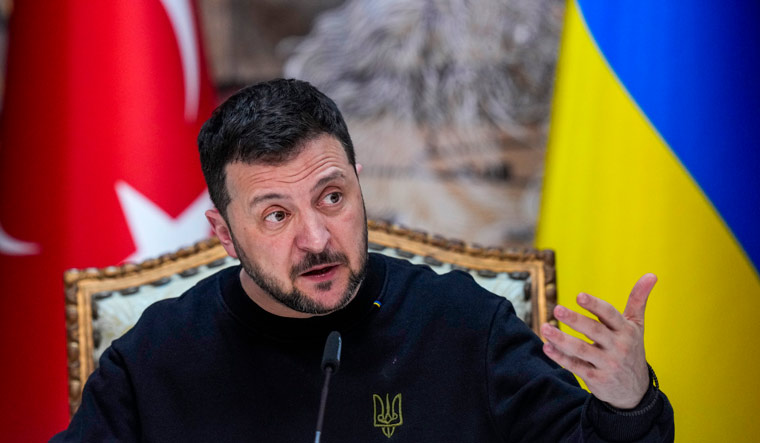Ukraine is set to officially launch membership talks with the European Union on Tuesday. President Volodymyr Zelenskyy has described it as a dream come true for Ukraine's citizens in the wake of Russia's full-scale invasion of the country in 2022.
Olga Stefanishyna, Deputy prime minister for European and Euro-Atlantic integration will be leading Ukraine's delegation at a conference in Luxembourg.
Presently, there are 27 EU member states.
Along with Ukraine, Moldova is also set to launch the official EU membership talks. Ukraine's EU aspirations go back a long time ago. The country had even adopted changes to its constitution to join the EU in February 2022, days after Russia's full-scale invasion. EU leaders were quick to act on it then though later the proceedings slowed down.
Ukraine is hoping to join by 2030.
Albania, Bosnia, Serbia, Turkey, Georgia, North Macedonia, Montenegro, Herzegovina and some other candidates with membership aspirations.
Turkey's accession talks have lasted almost two decades without result.
Since the beginning of Russia’s invasion, EU member states have stood with Ukraine in its war. Now, the official beginning of the talks gives a strong signal of the EU's solidarity. EU has been offering financial support to Ukraine as well. Even Moldova has faced its own challenges with Russia.
Zelenskyy had said that "these are truly historic moments". "Ukraine is and will always be part of a united Europe," said Zelenskyy.
Meanwhile, the road to being an EU member is filled with dozens of institutional and legal reforms. Candidate countries must bring their laws and standards into line with those of the EU in 35 policy areas, known as chapters, ranging from the free movement of goods through fisheries, taxation, energy and the environment to judicial rights and security.
All 27 member countries must give a unanimous agreement to open or close chapters, providing ample opportunity for EU nations to demand more work or to delay proceedings.
Hungary, which takes over the EU's rotating presidency from Belgium in July, has routinely put the brakes on EU and NATO support for Ukraine.


